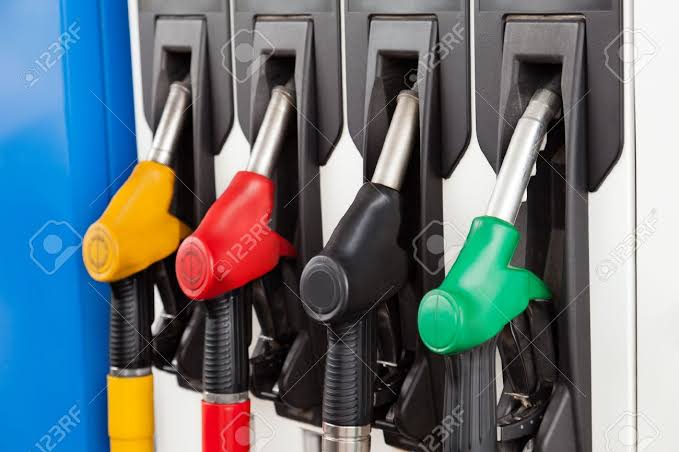The recent decrease in the price of Premium Motor Spirit (Petrol) following a direct fuel purchase agreement between Dangote Refinery and the Independent Petroleum Marketers Association of Nigeria may reduce inflationary pressures in the upcoming months, according to Nigerian economists and financial analysts.
In separate conversations with reporters on Monday, Mr. Idakolo Gbolade, the CEO of SD & D Capital Management, and Prof. Segun Ajibola, the former president of the Council of the Chartered Institute of Bankers, revealed this information.
According to the National Bureau of Statistics’ most recent Consumer Price Index, Nigeria’s headline and food inflation rates increased to 33.88 percent and 39.16 percent in October 2024, respectively, for the second consecutive month.
The country’s inflation rate increased by 6.55% year over year and 2.64 percent month over month.
Subsequent study revealed that throughout the reviewed period, urban and rural inflation rates were 36.38 percent and 31.59 percent, respectively.
The development demonstrated the deteriorating circumstances and declining purchasing power that most Nigerians had to deal with in recent months.
In Nigeria, increases in the cost of food, transportation, medications, electricity, apparel, and other necessities are not unrelated to the inflationary pressures.
Nigeria’s inflationary pressures cannot be resolved by CBN’s monetary policies—Ajibola
In response, Ajibola stated that because Nigeria’s inflationary pressures are cost-induced, monetary policies like interest rate costs set by the Central Bank of Nigeria cannot resolve them.
He emphasized that CBN has been using the incorrect medication to combat inflation over the years.
“Monetary policies cannot solve inflationary problems in Nigeria. The Central Bank of Nigeria has been fighting a battle that it cannot defeat because the country’s inflation pressures are cost-induced.
“It is because of a rise in demand or an increase in money supply.
“The landing cost of imported items is increasing due to the current exchange rate. Locally, there are pressures from all cost edges. So unless this is tackled, the challenges in Nigeria’s inflation will remain,” he stated.
Nigeria has not yet recovered from the withdrawal of gasoline subsidies and the Naira’s floating shocks, according to CPPE.
Nigeria has not yet recovered from the shocks of President Bola Ahmed Tinubu’s government’s June 2023 fuel subsidy removal policy and Naira floating policy, according to Muda Yusuf, Executive Director of the Centre for the Promotion of Private Enterprise.
“The rise in inflation is an indication that the economy is yet to recover from the shocks of the reforms in exchange rates and fuel prices.
“Hopefully, with some of the measures being implemented by the government or contemplated under the economic stabilisation plan, temporary import duty waivers, and other policies that will be fully implemented, we may see some reduction in the food prices,” he noted.
Idakolo criticizes the CBN for causing inflationary pressures on Nigerians for more than a decade.
According to Idakolo, the country’s inflationary pressures during the last ten years have not been affected by CBN monetary measures, such as the interest rate hike, which was 27.75 percent in October 2024.
“The CBN has tried various policies to stem inflation, but several other factors are making inflationary pressures increase.
“The economy has been experiencing inflationary pressures for the past 10 years,” he stated.
Fuel price reduction: Analysts discuss the Dangote and IPMAN agreement
Ajibola and Idakolo concurred that the agreement between Dangote Petrol and IPMAN for the direct sale of gasoline might be a game-changer for the holiday season and January of the next year.
The guarantee follows the signing of a deal between IPMAN and Dangote Refinery to buy 60 million liters of petroleum per week.
According to reports, in the past few days, gas prices have decreased from N5 to N50, selling for between N1060 and N1150 per liter at filling stations.
Renowned economist Ajibola discussed the development, stating that the recent decline in gas prices, which was ascribed to the Dangote Refinery and IPMAN agreement, would help reduce inflationary pressures in the months to come.
“Good enough, the prices of petrol are reducing now because of the direct PMS purchase agreement between Dangote Refinery and the Independent Petroleum Marketers Association of Nigeria; this will have a ripple effect on the cost of doing business in the country,” As he observed.
He did, however, add that Nigeria’s reliance on imports has made the country’s foreign exchange fluctuations—the Naira dropped to N1690.37 per dollar on the official FX market—a significant obstacle.
“Foreign Exchange has been so tough. It is a major cost item that may require time to address.
“Similarly, the cost of energy, fuel, and electricity will have a major impact on inflationary pressures.
“Reliance on local production, reduction of import duties for some consumables, we may have gradual improvements during this year if all that has been said is implemented,” he stated.
Idakolo further told newsmen that “the direct petrol sale deal between Dangote refinery and IPMAN is a welcome development because it will discourage importation of petroleum products and eliminate the cost associated with importation.
“The federal government concession to sell crude to local refineries in Naira is another way of sourcing the locally refined crude at a lower cost. These measures will go a long way to ease inflation in the long run if it is consistent”.
